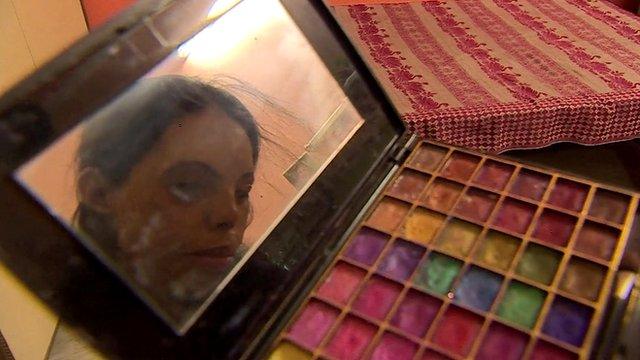The UK team whose holidays give acid attack victims new hope
- Published
The BBC's Justin Rowlatt meets European doctors treating acid attack victims in Delhi
Are you tired of the same boring holidays?
Want to do something more constructive?
How about using your time to try and improve the lives of people who have been horrifically disfigured in acid attacks?
That's what a team of British and Danish medical professionals does.
The members use their holidays to travel around the world offering free plastic surgery to some of the poorest people in the world.
Surgical marathon
The team, part of British charity Interplast UK, external, includes surgeons, anaesthetists, nurses, a physiotherapist - even a pharmacist.
They pay for their own flights, and often their own accommodation too.
Then they set up shop in a local hospital and prepare for a surgical marathon - treating as many needy patients as they can in the two weeks or so they are in the country.
I met them in the Indian capital, Delhi, where they undertook more than 100 surgical procedures in less than two weeks.
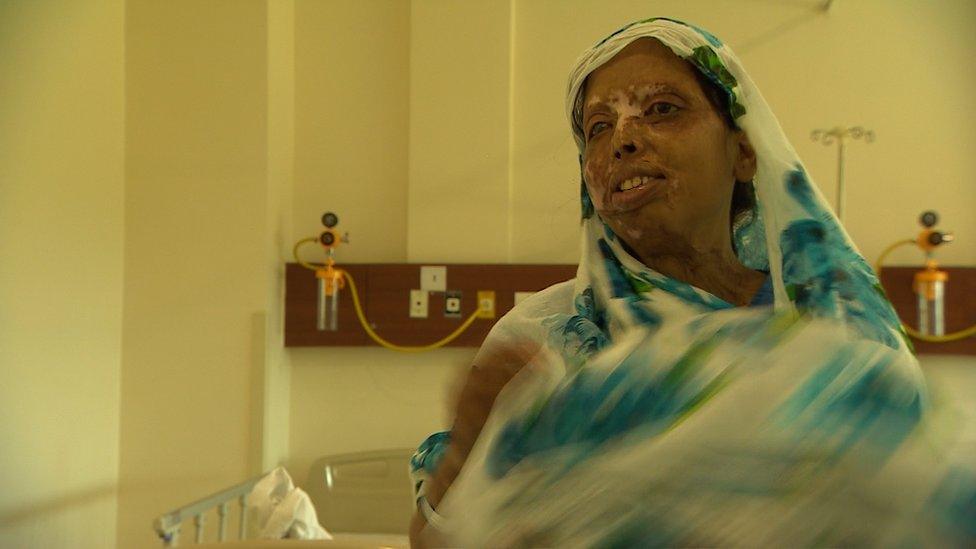
Many of Interplast UK's patients in India are acid attack survivors
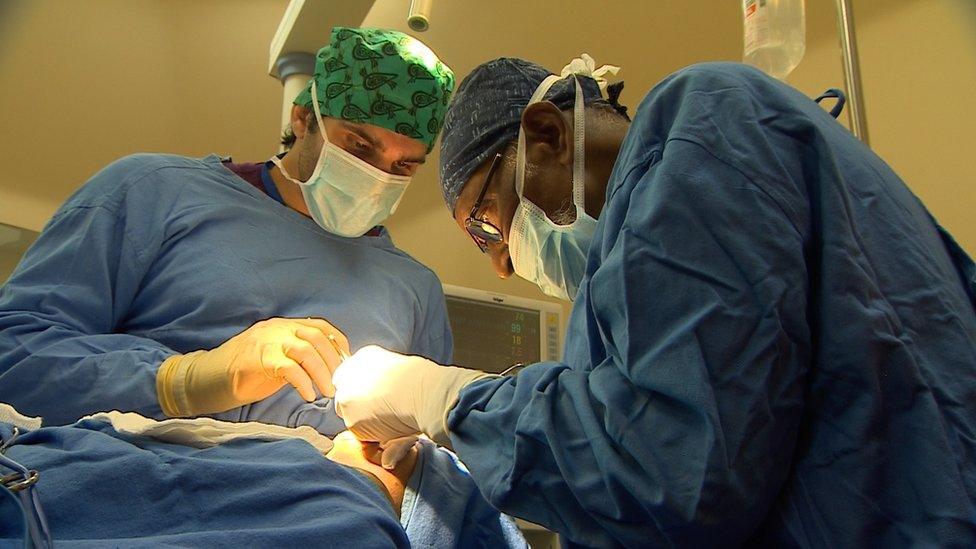
The team members say the courage their patients show is an inspiration to them
They see lots of children with cleft palates and the victims of burns and other accidental injuries, but about a quarter of their patients are people who have been deliberately disfigured: doused in acid in horrific attacks.
These attacks can utterly devastate lives, causing terrible injuries.
Everyone agrees these acid attacks are too common in India, but there are no reliable statistics.
Government figures suggest there are perhaps 1,000 such attacks a year; campaigners say that is a grotesque underestimate. They say the real figure is many, many times higher.
'Inspiration'
You might imagine that operating on the people who suffered these terrible injuries would be depressing.
Quite the opposite, says retired NHS plastic surgeon Charles Viva.
Middlesbrough-based Mr Viva has been running these "surgerythons" in developing countries for more than four decades.
He says the courage his patients show is an inspiration to him.
Anupama is a case in point. She has travelled more than 1,000km (621 miles) from her home in the Indian state of Bihar to be here.
Before she goes into the operating theatre, Anupama shows me her most treasured possession: her collection of photographs taken before she was assaulted.
She holds up a picture of a beautiful and confident young girl, sitting on a bed in a vivid red and gold sari. Her head is tilted proudly up towards the camera.
"The attack happened three months after this photograph was taken," she tells me. She was 14 years old.
'Horrifically predictable'
Twenty years later, Anupama is still a happy and proud woman, but her features have been utterly destroyed.
Most acid survivors are women, and most attackers are men, wreaking a terrible revenge, more often than not for some fairly minor slight.
So Anupama's story is horrifically predictable.
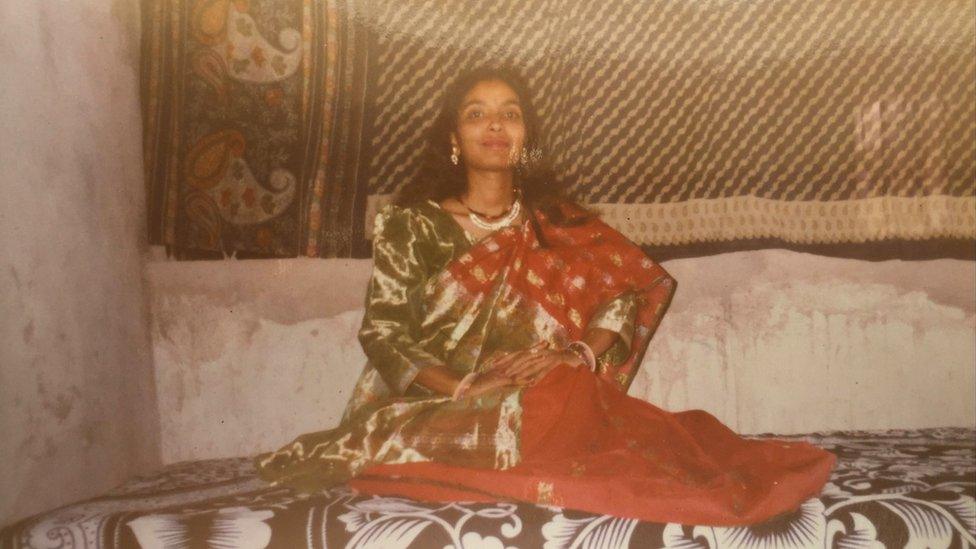
Anupama in a photograph taken three months before she was attacked with acid
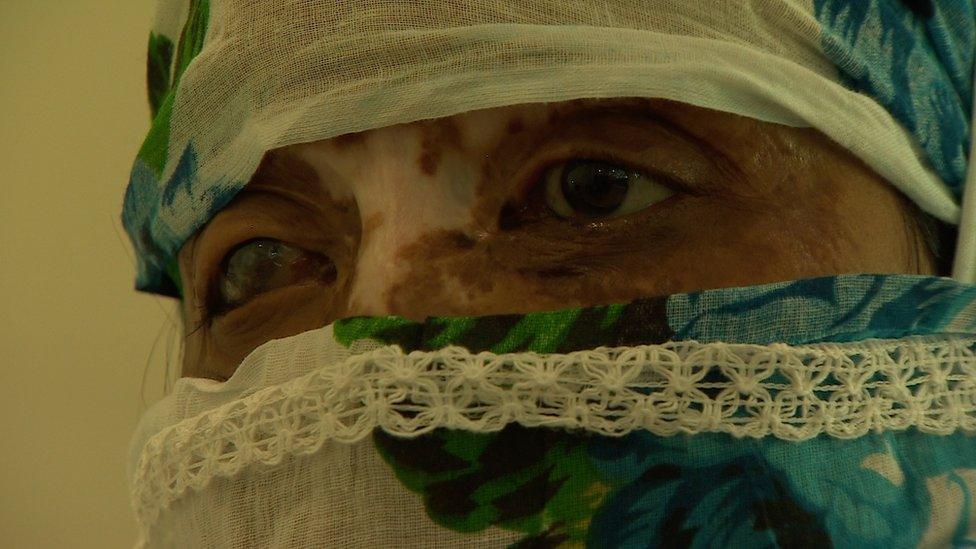
The acid attack that has ruined Anupama's features
She and her sister had been sexually harassed by a neighbouring family, she says. The two sons and a daughter had started propositioning her, calling out lewd comments, and trying to lure her into their house.
When her father complained, they became angry.
A few nights later, they came to the family house and threw acid on Anupama and her sister while they were sleeping.
Her sister escaped with minor injuries. Not Anupama.
Study in fortitude
The lower part of her face was melted in the attack. Her lip hangs loose and she has terrible scars all the way down her neck and on her chest.
Acid survivors are supposed to get free treatment but all too often the surgery is substandard.
Anupama has had a number of operations and each time, she says, she was told that she could only get the most rudimentary treatment.
Then, she tells me sadly, the surgeon would say he could give her much better care if she saw him as a private patient. But Anupama and her family are too poor to afford private surgery.
That's where Mr Viva and his team come in. They offer high quality surgery for no charge to anyone who needs it.
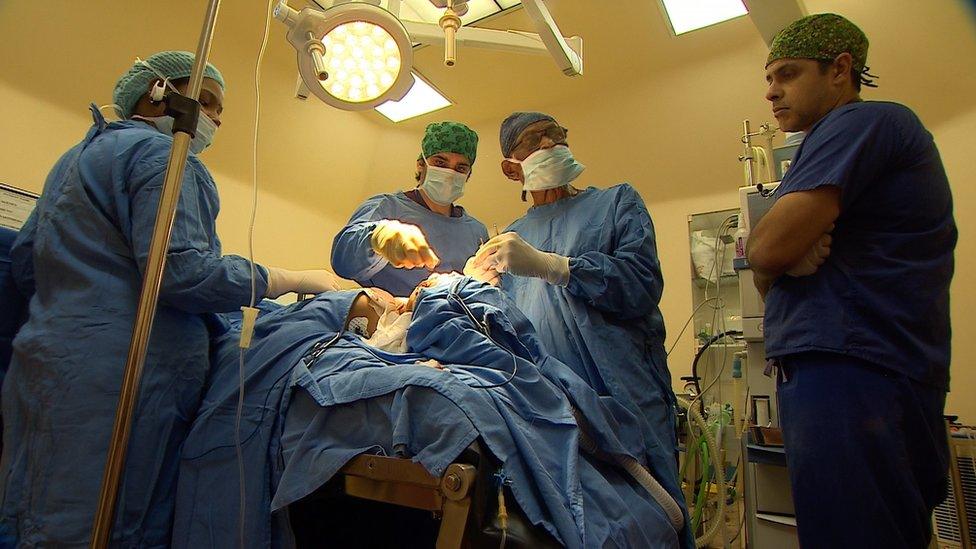
Doctors perform a surgery on Anupama's mouth
In a surprisingly short operation, Mr Viva and his team reshape her mouth to stop her dribbling when she eats.
A couple of hours later, she is enjoying a cup of tea and a biscuit.
You might imagine she would be destroyed by what she has suffered since the attack, but Anupama is a study in fortitude.
She says she is looking forward to seeing the results of the surgery once the scars heal and talks about how she wants to get a job so she can look after herself, but the treatment she has received for her injuries has not been good.
Not a sacrifice
Ghalib Muaddam, the anaesthetist with the team, tells me how satisfying he finds these trips.
"Sometimes I feel when I work in the UK, if I am away, someone would step in and do my job," he says. "Here, you feel you actually make a difference."
Some years, he uses all his holiday to work with Interplast UK.
He does not see it as a sacrifice.
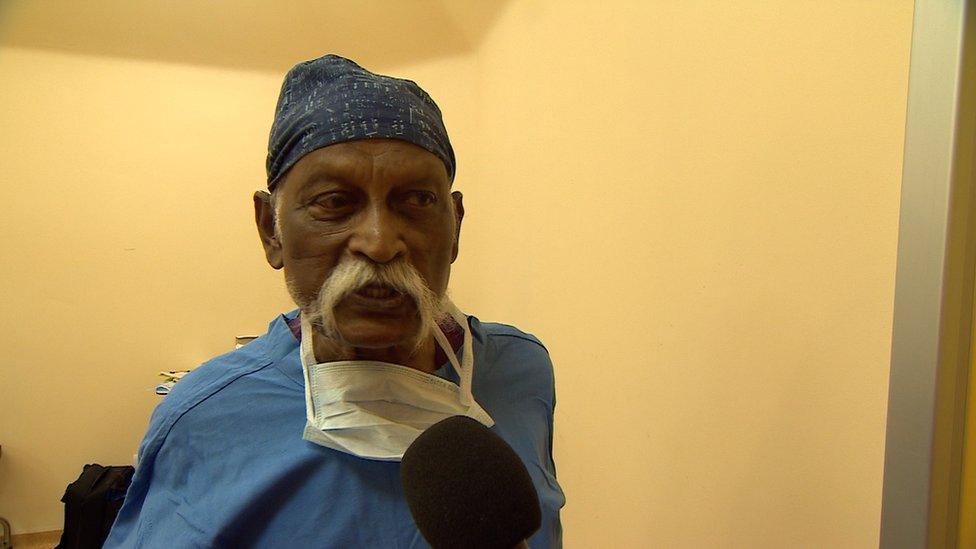
Retired NHS plastic surgeon Charles Viva has been running "surgerythons" in developing countries for more than four decades
"You get a lot back from doing these trips. I look at myself and I think how would I behave if I had such a significant burn? And I don't know if I would be so brave. In that way they are very inspiring, because they get on with life."
As Anupama packs up her bags, ready for the long trip back to her home on the other side of India, I can see what he means.
Lots of us seek to change our own lives for the better when we go on holiday.
It is a much greater achievement to change someone else's.
- Published23 February 2016
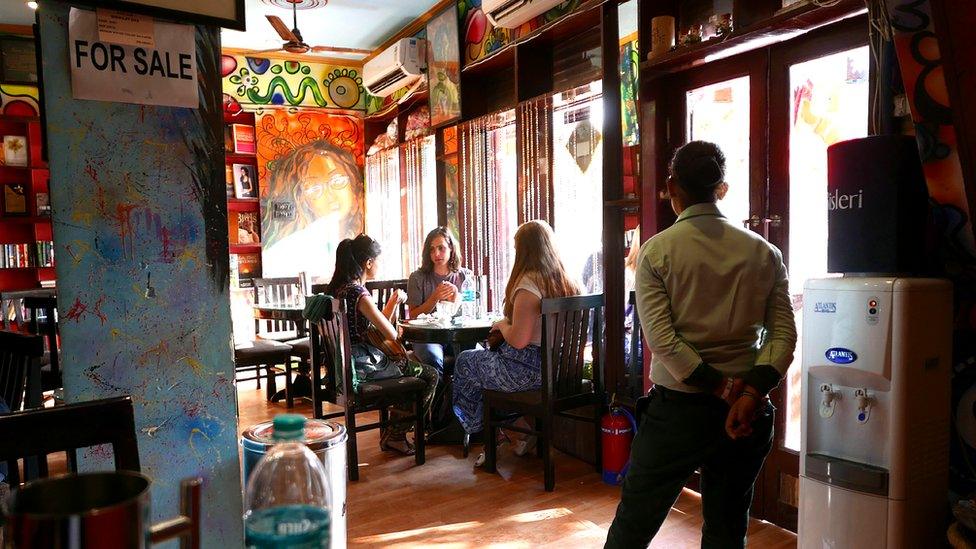
- Published13 January 2016
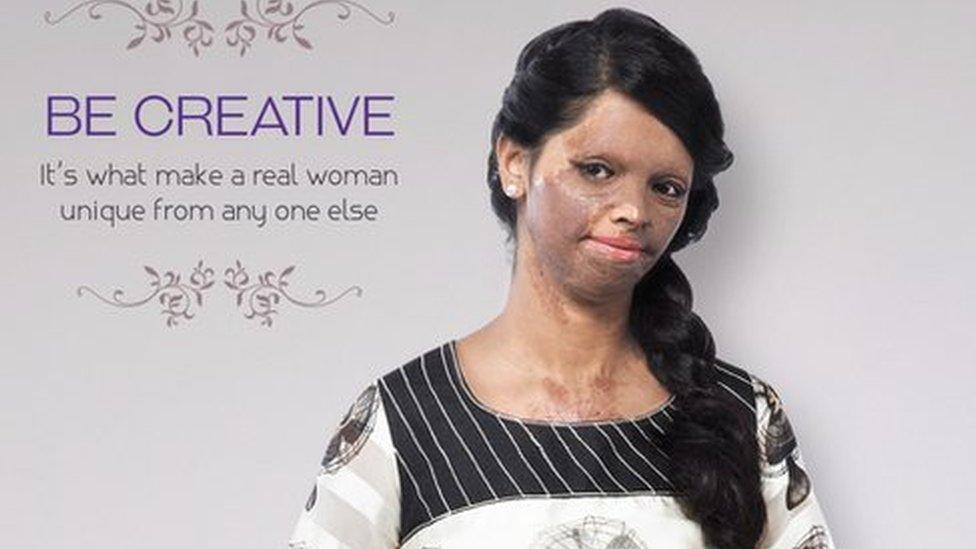
- Published18 August 2015
